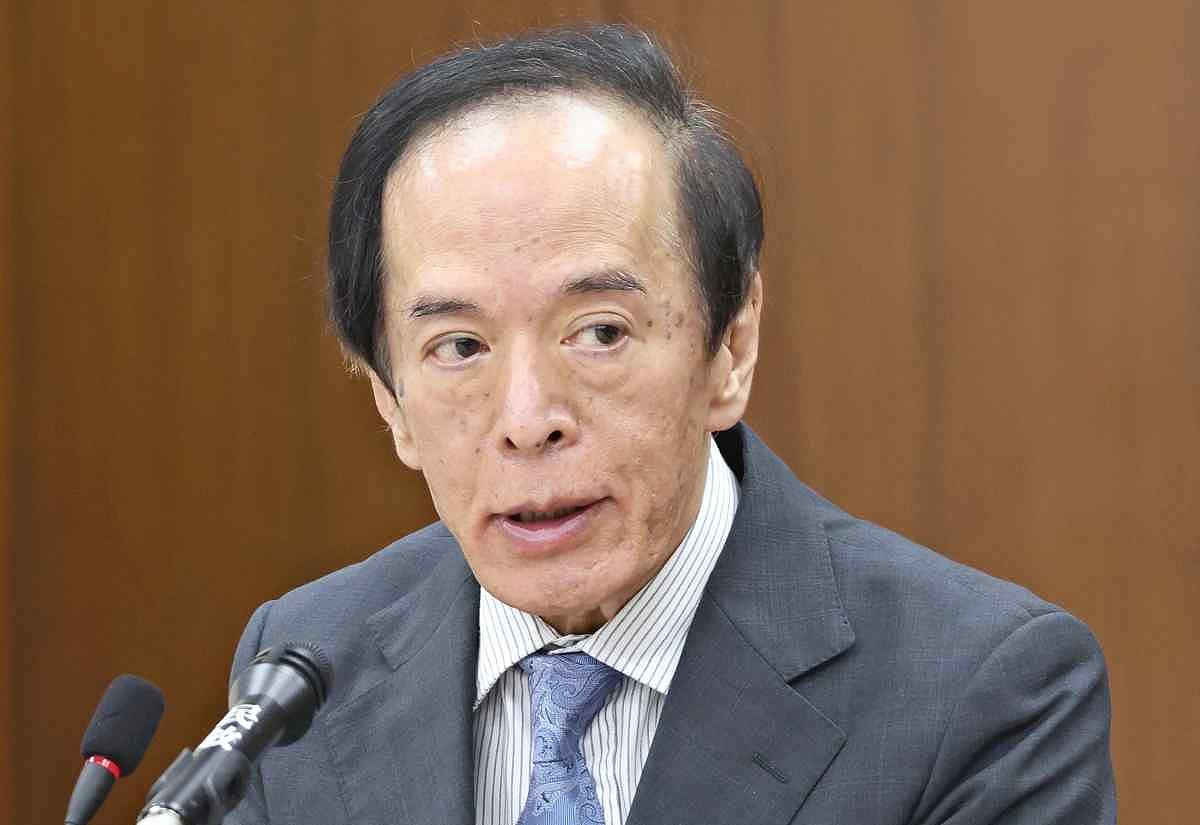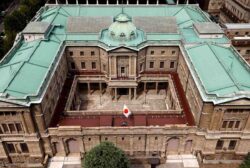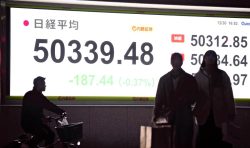Bank of Japan Chief Vows to Closely Monitor Unstable Markets; Gov. Kazuo Ueda Has Positive Stance on Future Interest Rate Hikes

Bank of Japan Gov. Kazuo Ueda answers questions during deliberations of the House of Representatives’ Committee on Financial Affairs, which were held while the Diet is out of session, on Friday.
15:38 JST, August 23, 2024
Bank of Japan Gov. Kazuo Ueda said during Diet deliberations on Friday that the central bank will closely monitor the ongoing volatility in the financial markets “with extreme caution.”
Ueda made the remarks during deliberations of the House of Representatives’ Committee on Financial Affairs, which were held while the Diet is out of session. He attended the deliberations to explain the BOJ’s response to the volatility in the stock and currency markets in early August after the central bank decided to raise its key interest rate from the 0.0%-0.1% range to around 0.25% during a monetary policy meeting on July 31.
At a press conference later the same day, Ueda expressed a positive stance about future rate hikes.
Following the policy meeting, fears over a recession in the U.S. economy intensified, while the Nikkei Stock Average experienced it largest-ever daily decline before largely recovering to mark its biggest gain the following day. The yen briefly strengthened to the ¥141 range against the dollar.
During the deliberations, Norihiro Nakayama of the Liberal Democratic Party asked for Ueda’s views regarding the reasons behind the sharp decline in stock prices and the recent market turmoil.
In response, Ueda acknowledged that the additional rate hike had affected the yen trade, saying, “The [BOJ] policy change at the end of July led moves to correct the yen’s one-sided and ongoing depreciation.”
Meanwhile, Hiromasa Nakagawa of the LDP’s junior coalition partner Komeito said, “Some people have pointed to [BOJ’s] insufficient dialogue with the markets.”
In response, Ueda expressed the bank’s intention to “continue to manage monetary policy appropriately while carefully communicating with the markets.”
Regarding future policy operations, Ueda said: “Our basic stance remains unchanged. We will adjust the degree of monetary easing while monitoring the impact of market movements on the economy and prices.”
Ueda reiterated the BOJ’s stance to raise interest rates again if it would increase the probability of realizing the bank’s target 2% inflation rate.
Top Articles in Business
-

Prudential Life Insurance Plans to Fully Compensate for Damages Caused by Fraudulent Actions Without Waiting for Third-Party Committee Review
-

Narita Airport, Startup in Japan Demonstrate Machine to Compress Clothes for Tourists to Prevent People from Abandoning Suitcases
-

JR Tokai, Shizuoka Pref. Agree on Water Resources for Maglev Train Construction
-

Toyota Motor Group Firm to Sell Clean Energy Greenhouses for Strawberries
-

KDDI Opens AI Data Center at Former Sharp Plant in Osaka Prefecture; Facility Will Provide Google’s Gemini AI Model for Domestic Users
JN ACCESS RANKING
-

Japan PM Takaichi’s Cabinet Resigns en Masse
-

Japan Institute to Use Domestic Commercial Optical Lattice Clock to Set Japan Standard Time
-

Israeli Ambassador to Japan Speaks about Japan’s Role in the Reconstruction of Gaza
-

Man Infected with Measles Reportedly Dined at Restaurant in Tokyo Station
-

Man Infected with Measles May Have Come in Contact with Many People in Tokyo, Went to Store, Restaurant Around When Symptoms Emerged
























